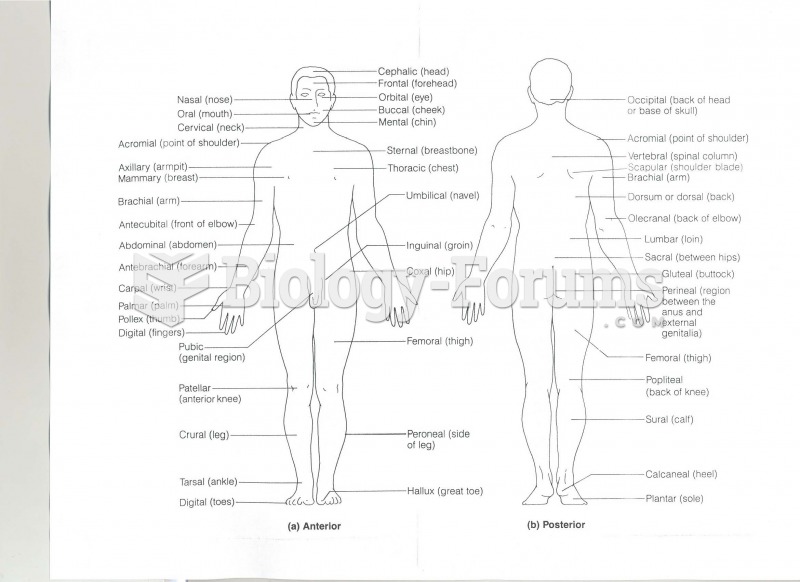|
|
|
Did you know?
Interferon was scarce and expensive until 1980, when the interferon gene was inserted into bacteria using recombinant DNA technology, allowing for mass cultivation and purification from bacterial cultures.
Did you know?
If you could remove all of your skin, it would weigh up to 5 pounds.
Did you know?
Never take aspirin without food because it is likely to irritate your stomach. Never give aspirin to children under age 12. Overdoses of aspirin have the potential to cause deafness.
Did you know?
There are 60,000 miles of blood vessels in every adult human.
Did you know?
Russia has the highest death rate from cardiovascular disease followed by the Ukraine, Romania, Hungary, and Poland.
 A thermostat stuck in the open position caused the engine to operate too cold. The vehicle failed ...
A thermostat stuck in the open position caused the engine to operate too cold. The vehicle failed ...
 Assist recipient into side-lying position. Woman sits on edge of table holding drape to cover her ...
Assist recipient into side-lying position. Woman sits on edge of table holding drape to cover her ...





